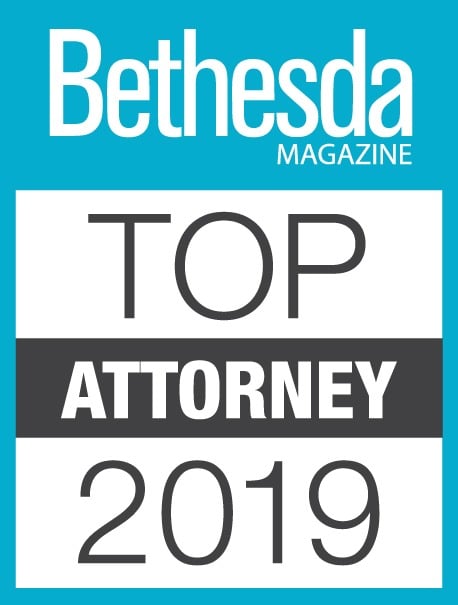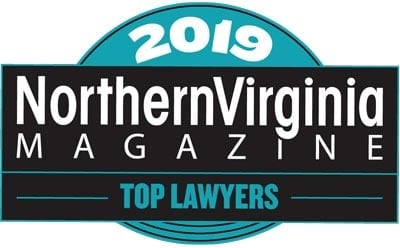Suing a Whistleblower Can Give Rise to a Retaliation Claim
Filing a lawsuit without a sufficient factual basis to dissuade a whistleblower or discrimination plaintiff from engaging in protected conduct can constitute actionable retaliation. See, e.g., Darveau v. Detecon, Inc., 515 F.3d 334, 340-341 (4th Cir. 2008); Gortat v. Capala Bros., 2011 U.S. Dist. LEXIS 149731 (E.D.N.Y. Dec. 30, 2011); Pinkett v. Apex Communs. Corp., 2009 U.S. Dist. LEXIS 34053, 9-12 (E.D. Va. Apr. 21, 2009). Sham litigation is not protected by the First Amendment. Rosania v. Taco Bell of Am., Inc., 303 F. Supp. 2d 878, 883 (N.D. Ohio 2004). See also Gill v. Rinker Materials Corp., No. 3:02-CV-13, 2003 U.S. Dist. LEXIS 2986 (E.D. Tenn. Feb. 24, 2003) (claim brought “not in good faith and instead motivated by retaliation, can be the basis for a claim under Title VII”); Gliatta v. Tectum Inc., 211 F. Supp. 2d 992, 1009 (S.D. Ohio 2002) (lawsuit brought in bad faith with retaliatory motivation prohibited by Title VII); Torres v. Gristede’s Operating Corp., 628 F. Supp. 2d 447, 472 (S.D.N.Y. 2008) (“baseless claims or lawsuits designed to deter claimants from seeking legal redress constitute impermissibly adverse retaliatory actions, even though they do not arise strictly in an employment context”); Stanerson v. Colorado Boulevard Motors, Inc., No. 06-cv-00856, 2006 U.S. Dist. LEXIS 80124 (D. Colo. Nov. 2, 2006); Nesselrotte v. Allegheny Energy, Inc., No. 06-01390, 2009 U.S. Dist. LEXIS 20767, 39-43; 45-46 (W.D. Pa. Mar. 16, 2009) (counterclaims and lawsuit against plaintiff’s spouse’s company can constitute retaliation under Burlington Northern standard); Rosania v. Taco Bell of America, Inc., 303 F.Supp.2d 878 (N.D. Ohio 2004) (employer’s filing of counterclaim was adverse employment action for purpose of retaliation); E.E.O.C. v. Outback Steakhouse of Florida, 75 F. Supp. 2d 756 (N.D. Ohio 1999) (same).
Indeed, threatening to sue a whistleblower can be actionable retaliation. See Brach v. Conflict Kinetics Corp., Case No. 1:16-cv-978 (E.D. Va. Dec. 1, 2016).
In a whistleblower action brought under Section 11(c) of the Occupational Safety and Health Act, the Secretary of Labor made the following argument in a motion for summary judgment:
Lawsuits filed with the intent to punish or dissuade employees from exercising their statutory rights are a well- established form of adverse action. See BE & K Constr. Co. v. NLRB, 536 U.S. 516, 531 (2002) (Finding that a lawsuit that was both objectively baseless and subjectively motivated by an unlawful purpose could violate the National Labor Relations Act’s prohibition on retaliation); Torres v. Gristede’s Operating Corp., 628 F. Supp. 2d 447, 472 (S.D.N.Y. 2008) (“Courts have held that baseless claims or lawsuits designed to deter claimants from seeking legal redress constitute impermissibly adverse retaliatory actions.”); Spencer v. Int’l Shoppes, Inc., 902 F. Supp. 2d 287, 299 (E.D.N.Y. 2012) (Under Title VII, the filing of a lawsuit with a retaliatory motive constitutes adverse action).
And in a SOX whistleblower case, Judge Panagiotis held that an employer suing a whistleblower for making recordings in the workplace is actionable retaliation. Liow v. Westrock Co., 2023-SOX-00008 (ALJ July 5, 2024).
To learn more about whistleblower rewards or whistleblower protections, call the whistleblower lawyers at Zuckerman Law at 202-262-8959, or click here.
See these related posts and FAQs:
- Court Rules that Whistleblowers Can Use Confidential Company Documents to Expose Fraud
- Retaliatory Lawsuit Against Whistleblower Dismissed on Summary Judgment
- False Claims Act Decision Recognizes Public Policy Exception to Confidentiality Agreements
- De Facto Gag Clauses: The Legality of Employment Agreements That Undermine Dodd-Frank’s Whistleblower Provisions
- 5 Questions To Ask Before Suing Over Whistleblower Theft
- Forbes Quotes Whistleblower Attorney Jason Zuckerman About Self-Help Discovery in Whistleblower Litigation
- Can Whistleblowers Disclose Secret Recordings to the SEC?
What Damages Can Whistleblowers Recover in Whistleblower Retaliation Cases?
Some courts have held that when an employer responds to a lawsuit that has alleged, unlawful reprisal by bringing a lawsuit against that employee, that the lawsuit, itself, is an act of unlawful retaliation. The reason is that the lawsuit by the employer is meant to prevent the employee from exercising his right to proceed with a claim of reprisal.
Whistleblower Retaliation Lawyers
Our experienced whistleblower retaliation lawyers have substantial experience litigation whistleblower retaliation cases nationwide, including claims under the Sarbanes-Oxley whistleblower protection law. To schedule a confidential consultation, call us at 202-262-8959 or send us a message.




Described by the National Law Journal as a “leading whistleblower attorney,” founding Principal Jason Zuckerman has established precedent under a wide range of whistleblower protection laws and obtained substantial compensation for his clients and recoveries for the government in whistleblower rewards and whistleblower retaliation cases. Three of the cases he worked on are featured in Tom Mueller’s seminal book about whistleblowing Crisis of Conscience: Whistleblowing in an Age of Fraud and Dan Maldea’s Corruption in U.S. Higher Education: The Stories of Whistleblowers. The False Claims Act qui tam cases that Zuckerman has worked on in conjunction with other attorneys have resulted in recoveries in excess of $100 million, and he has secured settlements above $1 million in eight SOX whistleblower retaliation matters.
In 2019, the National Law Review awarded Zuckerman its “Go-To Thought Leadership Award” for his analysis of developments in whistleblower law, and Washingtonian magazine has named two of our attorneys to its list of Top Whistleblower Attorneys. U.S. News and Best Lawyers® have named Zuckerman Law a Tier 1 firm in Litigation – Labor and Employment in the Washington DC metropolitan area in the 2020 edition “Best Law Firms.”
Liow v. Westrock Co.
SOX creates an independent cause of action for “any lawful act done by the employee—to file, cause to be filed, testify, participate in, or otherwise assist in a proceeding filed or about to be filed (with any knowledge of the employer) relating to an alleged violation of section 1341, 1343, 1344, or 1348, any rule or regulation of the Securities and Exchange Commission, or any provision of Federal law relating to fraud against shareholders.” 18 U.S.C. § 1514A(a)(2). WestRock’s focus on the timing of the disclosure of the recorded conversations or whether the parties’ made factual or legal arguments relating thereto, is misplaced. The protected activity Complainant asserts is the filing of her SOX 1 complaint. The adverse action she alleges, was WestRock’s filing of the civil lawsuit under the Illinois Eavesdropping Act, a discrete set of facts that arose after the operative facts concerned in the SOX 1 complaint. OSHA did not complete its investigation of the SOX 2 complaint until well after the evidentiary hearing in the SOX 1 complaint was concluded. As the events leading up to the SOX 2 complaint are discrete and separate from the operative facts involved in the SOX 1 complaint, Complainant’s SOX 2 complaint is not barred by the effects of res judicata. Furthermore, the fact that WestRock may also have a legitimate business reason for instituting the state court proceeding does not shift to the Complainant the burden of showing retaliatory motive as part of her prima facie case. See Murray, 601 U.S. at 34-35 (“An animus-like “retaliatory intent” requirement is simply absent from the definition of the word “discriminate.” When an employer treats someone worse—whether by firing them, demoting them, or imposing some other unfavorable change in the terms and conditions of employment—“because of” the employee’s protected whistleblowing activity, the employer violates § 1514A.”)
Moreover, whether Complainant may have recorded conversations in violation of company policy and state law is not dispositive. In Vannoy v. Celanese Corp., ARB No. 09-0118, slip op. at 4-5 (ARB Sept. 28, 2011), the respondent discovered that the complainant “had sent a document containing 1,600 unique social security numbers of current and former Celanese employees to the personal e-mail account that was in the name of Vannoy’s domestic partner.” The Board noted that “[t]here is a clear tension between a company’s legitimate business policies protecting confidential information and the whistleblower bounty programs created by Congress to encourage whistleblowers to disclose confidential company information in furtherance of enforcement of tax and securities laws.” Id. at 16. The Board further noted that the “[p]assage of these bounty provisions demonstrate that Congress intended to encourage federal agencies to seek out and investigate independently procured, non-public information from whistleblowers[.]” Id. (emphasis added). The Board held that “the crucial question for the ALJ to resolve with a hearing on remand is whether the information that Vannoy procured from the company is the kind of “original information” that Congress intended to protect under either the IRS or SEC whistleblower programs, and whether the manner of the transfer of information was protected activity within the scope of SOX.” Id. at 17.
On a motion to dismiss, the court must accept all well-pled allegations and reasonable inferences in the favor of the non-moving party. Complainant alleges that the information she recorded was to gather information about unlawful conduct. Nothing in the record presently before the Court establishes the nature or content of the recorded conversations and is therefore impossible to determine whether the recorded conversations were the type of “original information” Congress intended to protect. See also Franchini v. Argonne Nat’l Lab’y, ARB No. 12-0081, slip op. at 14 (ARB Sept. 28, 2015) (“[T]o the extent that some of Franchini’s recordings taken during his employment involved work place safety concerns and were taken, as he testified, because he anticipated using the recordings in seeking resolution of problems he had identified “outside the Lab,” such recordings would constitute ERA protected activity.”) (internal citations omitted).
In Hoffman v. NetJets Aviation, Inc., ARB No. 09-0021, slip op. at 8 (ARB Mar. 24, 2011), the complainant disclosed 750 recordings during discovery in his first whistleblower complaint, most in violation of company policy. The Board “emphasize[d] that the lawful taping of conversations to obtain information about safety-related conversations is protected activity and should not subject an employee to any adverse action.” Id. at 9. The Board reaffirmed its holding in Mosbaugh v. Georgia Power Co., Nos. 1991-ERA-001, -011 (Sec’y Nov. 20, 1995) that “selective recordings” to gather evidence of activities that are protected under the whistleblower statutes is also protected. Id.








